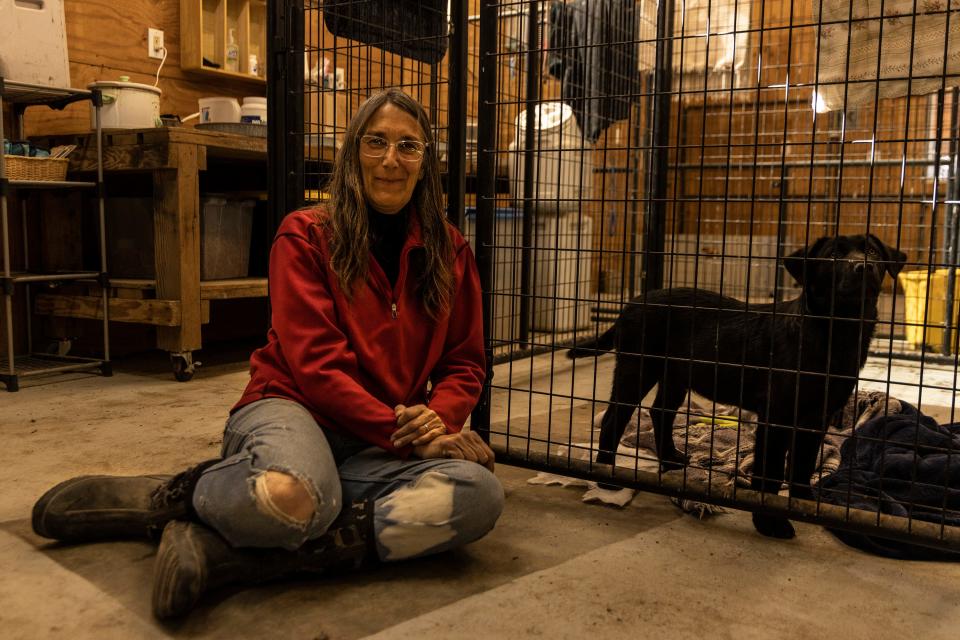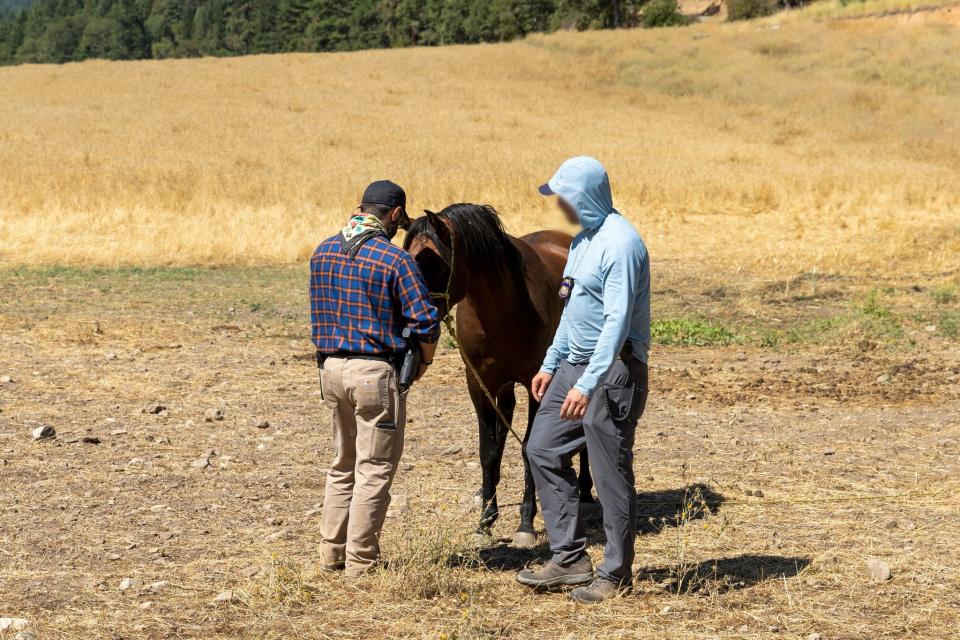Left behind: Dogs often abandoned at illegal California pot grows, filling shelters
SISKIYOU COUNTY, Calif. ― A thin, frightened husky-shepherd mix named Clover hobbled down a busy highway in rural Northern California. He had escaped an illegal cannabis grow but was struck by a car.
A driver scooped him up, and he got the help he needed at Rescue Ranch, an animal rescue center in Siskiyou County. He's one of the lucky ones.
Animal abuse and neglect at thousands of illegal cannabis cultivation sites is a growing concern for police and animal rescue workers throughout Northern California and Southern Oregon.
Many dogs don't escape and aren't rescued in time.

Most cultivators, including Mexican cartels and criminal syndicates from Eastern Europe and Asia, have one or more guard dogs to alert them about approaching police, vermin or robbers. Dogs are often mistreated and later abandoned at the end of harvest season.
"At the end of cultivation season, a lot of times the dogs are turned loose, or abandoned in their pens. Sometimes they’re found deceased" from starvation or extreme weather, said Sgt. Nate Trujillo, an investigator with the Trinity County Sheriff's Office.
More: This small-town Oregon bricklayer had a side hustle: Gun supplier for Mexican drug cartel
Cultivators typically don't spay or neuter the dogs, which roam around and breed after they've been abandoned, leaving hungry puppies in need of rescue, said Christina Merritt, head of the Trinity County Animal Shelter in Weaverville, which is typically at capacity.
Pudge the puppy, a black Labrador Retriever mix, recently trotted down a busy highway in Siskiyou County with bailing twine wrapped around his neck, escaping an illegal cannabis grow.
A worker from an area animal rescue center spotted the puppy and two adult dogs and pulled over, concerned they would get hit by a car. The older dogs turned and ran away, but Pudge couldn't resist a tortilla chip.
He ended up at Rescue Ranch's sanctuary in the Big Springs-Montague area, a valley surrounded by snow dusted mountains and Mount Shasta, a volcano with an interior glacial lake. The stunning natural beauty sharply contrasts with the valley's dozens of illegal grows and the associated hoop houses covered in plastic and littered with mounds of trash ― home to dozens of abused or neglected guard dogs.
"At some of the grows, they're just a tool, like a shovel or wheel barrel, to serve as an alarm," said Laura Finley, operations manager at the sanctuary. One rescue, a gray bulldog, had a soft bark, so cultivators tied several plastic jugs around his neck.
Finley walked inside Pudge's large pen to pat his belly and head as he looked up at her with tobacco-colored eyes.
"You're getting love and lots of food," she told him, as he wagged his tail and touched her legs with his paws. "It's OK, honey.
"You're gonna have a positive outcome."
Her husband, John Golay, serves as the executive director of Rescue Ranch, started 12 years ago. It includes an adoption center in Yreka.
It shouldn't be hard to find a loving home for the puppy. The rescue center has placed dogs in California as well as several other states, including New York, Texas, Georgia and Colorado.
Older adult dogs, however, can have a more difficult time.
Sanctuary workers care for injured or malnourished dogs and train most of them, so they are ready for adoption.
More: Marijuana wars: Violent Mexican drug cartels turn Northern California into ‘The Wild West’
Currently, there are five non-adoptable dogs with behavioral challenges. Some bite strangers, others seem gentle but can become aggressive without much warning. They are cared for and loved at the sanctuary.
The no-kill shelter on a 150-acre parcel is privately funded and often struggles to make its $1.2 million operating budget through grants and donations, Golay said.



There are about 180 dogs at the sanctuary now, and up to 80% of them came from illegal cannabis grows, he said.
At the sanctuary, dogs get exercise time for a 2-mile run around the perimeter fence. From the property's edge, several abandoned grow sites littered with large reams of plastic and trash are visible. Some were raided by police.
Shelter workers were hoping the growers had moved out of their area for good. But Golay spotted water trucks rolling in and extra customers at area garden supply stores ― two signs that cultivators are gearing up for another season.
He knows that ultimately will mean more dogs in need of rescue. He and his staff will be ready.
For more information about Rescue Ranch's sanctuary and adoption center, visit their website at rrdog.org.
This article originally appeared on Louisville Courier Journal: Animal abuse, abandonment at cartel-linked California cannabis grows

